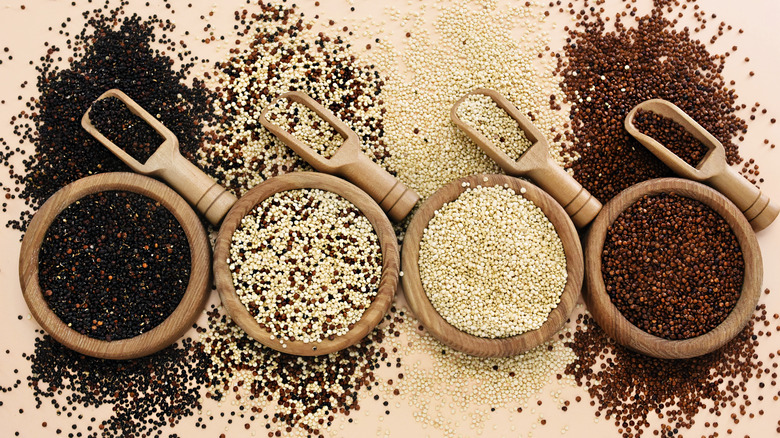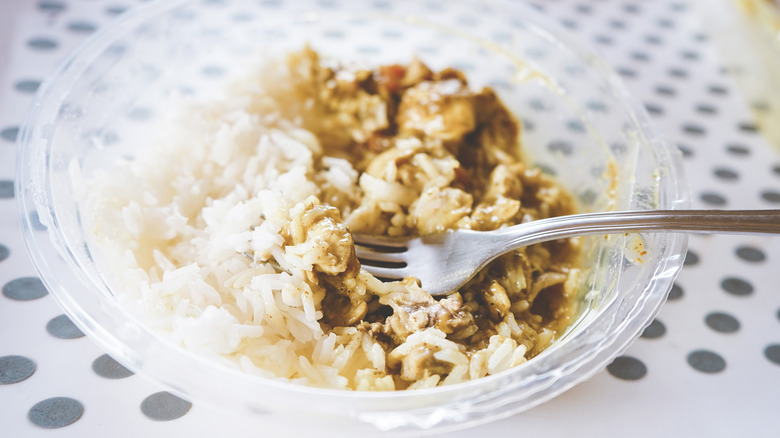The Best Starches To Meal Prep, According To A Dietitian
One of the crucial things to consider when meal prepping is how well certain items will reheat. Sure, dishes like a broccoli rabe lasagna or chicken tikka masala seem designed for the microwave, but others pose a challenge, particularly starches. Lindsay Livingston, RD, who shares tips for Mastering Food Prep and other Food Prep Resource on her blog, The Lean Green Bean, gave Food Republic some advice. She said, "Not everyone enjoys reheated starches like potatoes and sweet potatoes because they aren't as crispy when reheated, but starches like rice, quinoa, farro, beans, and lentils can be prepped ahead of time as components, and used to cut down on cooking time during the week."
Some of these starches can even be cooked together to save time. Dried beans and lentils, for example, can be cooked in a rice cooker with the grains of your choice, to make things like khichdi or Spanish style rice and beans. To make for a more interesting textural contrast, you can also opt for grain mixes, which can be excellent bases for veggie bowls. And if beans are your thing, you can skip the additional cooking time altogether and use canned beans to save time.
How to store and reheat grains
One of the biggest worries about reheating grains, particularly rice, is that it's hard to store cooked rice and other grains without them drying out. But there are several things you can do to combat this. First off, smaller, chewier grains tend to rehydrate more easily, so sticking to something like quinoa or bulgur wheat instead of rice or farro might be better overall for meal prepping.
Storing your grains in an airtight container will help them to retain moisture. Some even prefer pre-portioning and tightly wrapping hot rice in plastic wrap, and then reheating it within the plastic wrap. Reheating your grains with a little bit of water added is another common way to help rehydrate them, as is storing them in soup or sauce to help keep moisture in (though you run the risk of your grains absorbing all of the liquid and becoming mushy).
Livingston shared one final recommendation to help with prepping your grains: "Cook a large batch of beans or grains, portion into 1-2 cup servings and freeze them so you can just pull them out to thaw as needed." That way, you can focus on your proteins and veggies without worrying about another thing on your to-do list.


